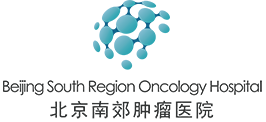On February 17, 2025,Innovent Biologics announced that its first-in-class PD-1/IL-2α-bias bispecific antibody fusion protein, IBI363, has received its second Fast Track Designation (FTD) from the U.S. Food and Drug Administration (FDA). This designation applies to the treatment of unresectable, locally advanced, or metastatic squamous non-small cell lung cancer (sqNSCLC) that has progressed following anti-PD-(L)1 immune checkpoint inhibitor therapy and platinum-based chemotherapy. IBI363 has demonstrated encouraging efficacy and safety across multiple solid tumor types. Currently, Innovent is conducting Phase 1/2 clinical trials of IBI363 mainly in China and the U.S.
Fast Track Designation (FTD) is a regulatory process designed to expedite the clinical development and review of drugs intended to treat serious conditions and address unmet medical needs. Drug candidates granted FTD benefit from increased communication with the FDA throughout subsequent drug development, potentially accelerating their clinical development and approval process.
About IBI363 (First-in-class PD-1/IL-2α-bias bispecific antibody fusion protein))
IBI363 is a first-in-class drug candidate independently developed by Innovent Biologics. It is a PD-1/IL-2 bispecific antibody fusion protein designed to enhance efficiency while minimizing toxicity. The IL-2 arm of IBI363 has been engineered to optimize therapeutic effects with reduced side effects, while the PD-1 binding arm enables PD-1 blockade and selective IL-2 delivery. By simultaneously inhibiting the PD-1/PD-L1 pathway and activating the IL-2 pathway, IBI363 facilitates more precise and efficient targeting and activation of tumor specific T cells. Preclinical studies have shown that IBI363 exhibits strong anti-tumor activity across multiple tumor-bearing pharmacological models, including those resistant to PD-1 inhibitors and metastatic models. Additionally, it has demonstrated a favorable safety profile in preclinical models. Clinical trials are currently underway in China, the United States, and Australia to evaluate its safety, tolerability and preliminary efficacy in subjects with advanced malignancies.
At the World Conference on Lung Cancer (WCLC) in September 2024, IBI363 presented promising efficacy signals in patients with sqNSCLC who had previously received immunotherapy:
In the 3 mg/kg dose group, among patients with at least 12 weeks of follow-up or study completion (n=18), the objective response rate (ORR) was 50.0%, and the disease control rate (DCR) was 88.9%. The median progression-free survival (PFS) has not yet been reached and remains under follow-up.
In the 1/1.5 mg/kg dose group, the median PFS was 5.5 months (95% CI: 1.5, 8.3), with a 12-month PFS rate of 30.7%, highlighting the potential long-term benefits of immunotherapy.
Across the 1/1.5/3 mg/kg dose groups, patients with PD-L1 TPS<1% (n=22) and those with PD-L1 TPS≥1% (n=22) achieved encouraging ORRs of 36.4% and 31.8%, respectively, suggesting IBI363’s potential advantage in PD-L1 low-expression populations.
About Squamous Non-Small Cell Lung Cancer (sqNSCLC)
Lung cancer is the most common and deadliest malignancy worldwide, including in China[1], posing a significant public health challenge. Non-small cell lung cancer (NSCLC) accounts for more than 80% of all lung cancer cases[2], with squamous cell carcinoma being one of its two major subtypes[2]. In recent years, immune checkpoint inhibitors have transformed the treatment landscape for NSCLC. However, for patients with NSCLC who have failed immunotherapy and lack driver gene mutations, there remains a significant and urgent unmet need for effective treatment options. The standard second- or third-line treatment, docetaxel, offers limited efficacy, with a median progression-free survival (PFS) of less than four months[3],[4]. While antibody-drug conjugates (ADCs) have shown promise, two large Phase 3 studies in squamous NSCLC have yet to demonstrate satisfactory efficacy.
At present, there are still many clinical trials of new anti-cancer technologies in China seeking patients. Consultation on new drugs and technologies, you can contact Beijing South Region Oncology Hospital International Department.
Phone Number:4008803716
Email:myimmnet@163.com
References
Post time: Feb-20-2025

